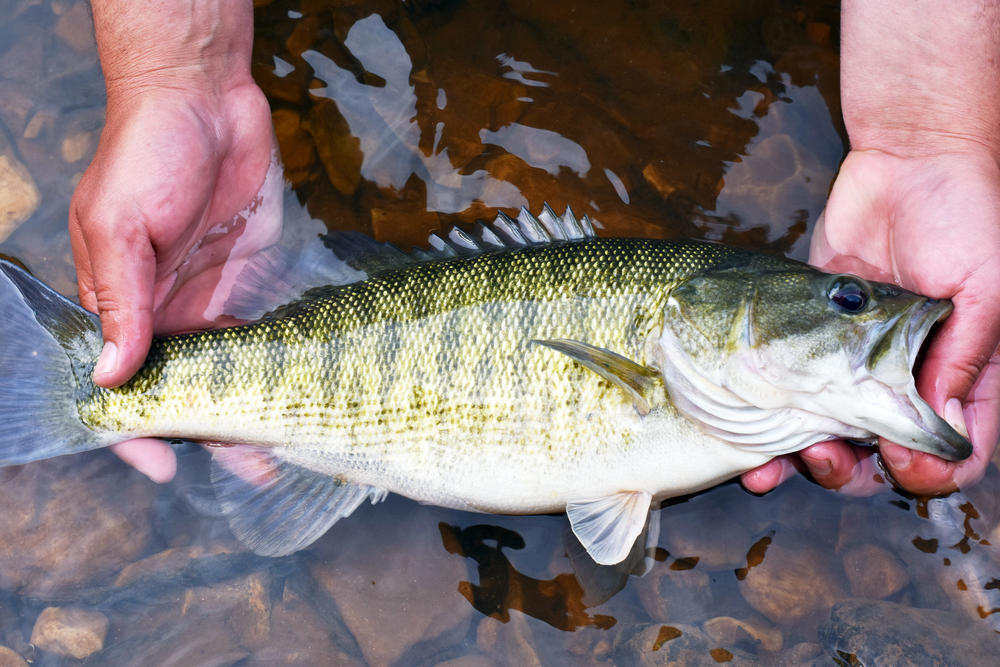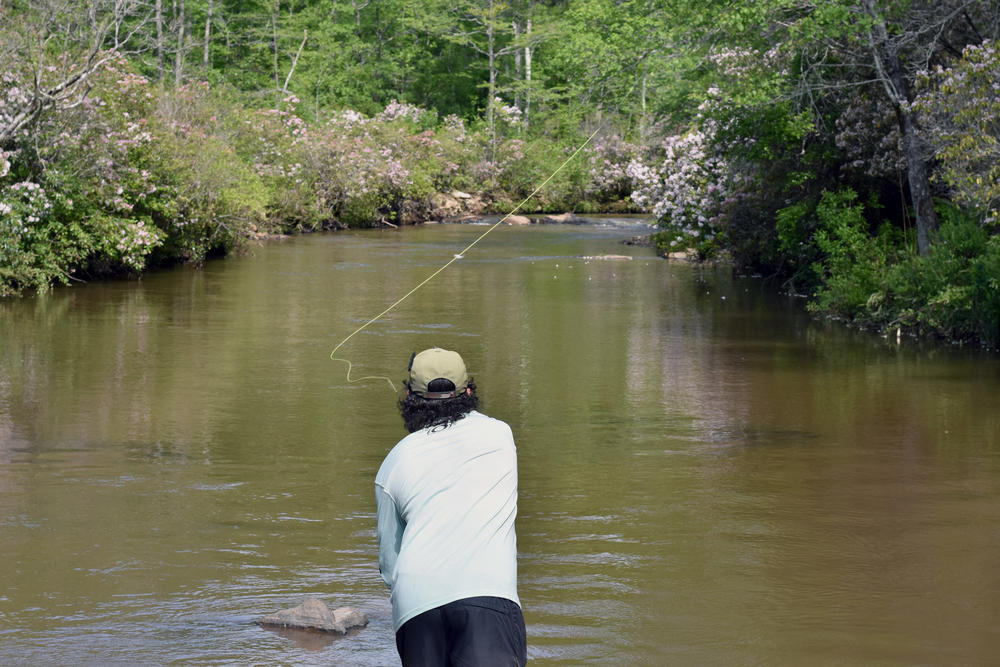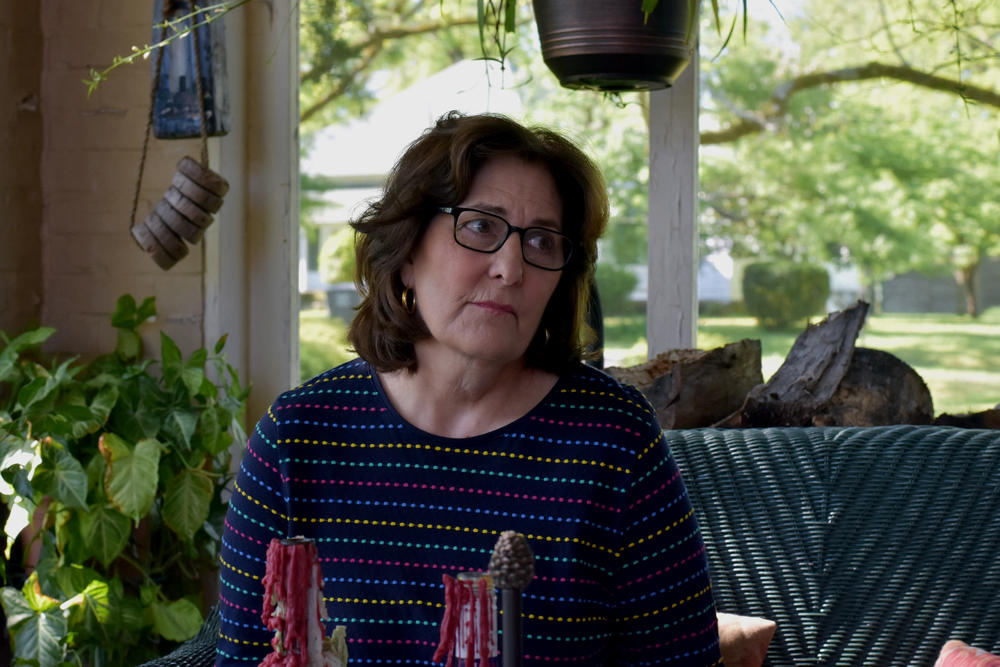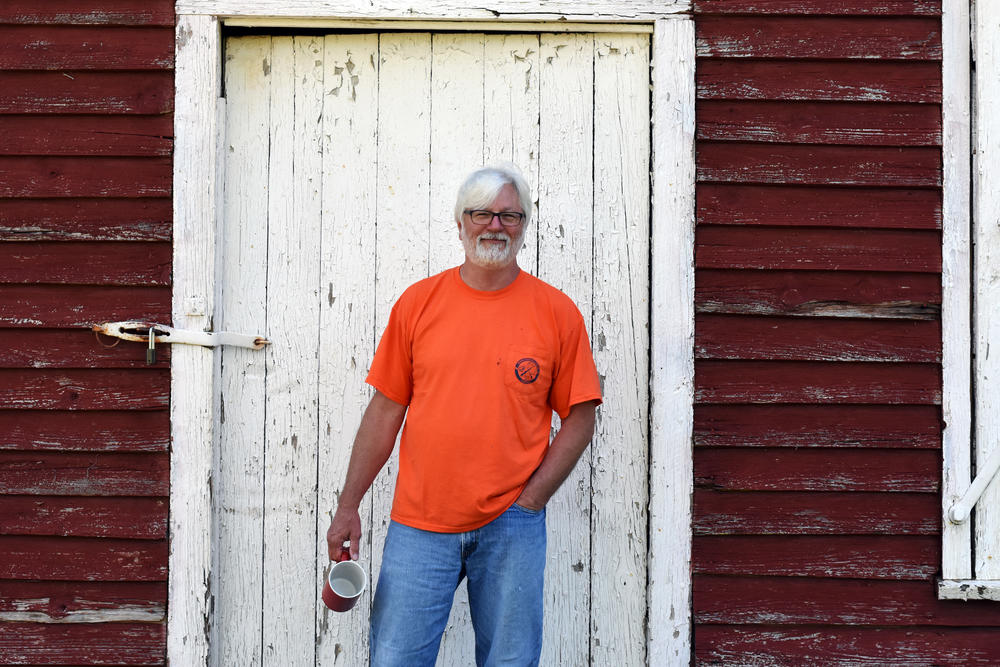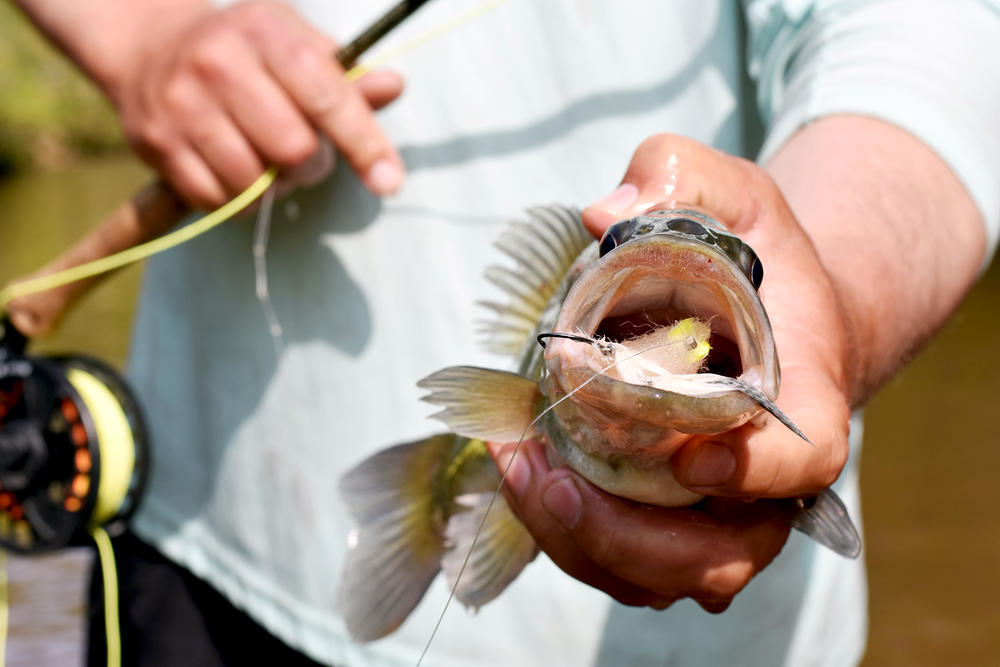Section Branding
Header Content
On The Flint, A Fight For A Fish
Primary Content
Georgia has a lot of official state “things” – such as the brown thrasher as the state bird, the Cherokee Rose as the state flower and even grits as the state’s prepared food.
Some lawmakers, conservationists and fishermen want to add another “thing” to the list: the shoal bass.
They say raising awareness of this fish in the Flint and other rivers could benefit the environment and the rural economy.
Standing on the banks of the Upper Flint River, Allen Ragsdale is a master at work.
A flick of the wrist lands his bait between wildflowers, a subtle tug at the line draws underwater interest and then – a triumphant splash. It’s a shoal bass.
Ragsdale runs Fall Line Guide service out of Thomaston, and, for the last decade, he’s been taking people from as far away as Australia to fish for the native shoal bass, which are known for a fierce fight and brilliant tiger stripe-like scales.
Colloquially known as a shoalie, the fish is a hidden gem celebrated by those along the rivers – a brewery in Albany even named an IPA after it – but it’s not the first fish that comes to mind when you think Georgia.
The state does have an official cold water fish, salt water fish and “plain old fish” fish, but there’s nothing special for fish found in Georgia’s rivers.
About a dozen miles down the road from Thomaston in a little community known as Ypsilanti, I’m greeted by Flint Riverkeeper Gordon Rogers, Representative Debbie Buckner, and Rogers’ dog Buster.
Buckner, a Democrat from Junction City, has been championing the cause of the shoal bass in the legislature for several sessions.
“This is an extremely low-cost thing that the state of Georgia can do when they name something that is unique and special to help small businesses,” Buckner said.
She’s sponsored a bill three times now to get the shoal bass up there with the official state ‘possum,' the official state barbecue cookoff and official state waltz.
Buckner says there wasn’t enough time to get her measure added back into a Department of Natural Resources bill brought up in the final minutes of this year’s legislative session.
Her argument is a business case: showcasing the shoal bass brings more tourism dollars to a part of the state that badly needs it.
“Fishing guide businesses, restaurants, bed and breakfasts, kayaking trips,” she ticks off. “All kinds of things can grow out of having that fish designated – to increase opportunities for people in rural Georgia where there aren't that many new opportunities presenting themselves.”
Buckner likens the push for recognition to throwing a stone in water – like the Flint river, perhaps – and watching the ripple effect grow.
Gordon Rogers, the Flint Riverkeeper and self-proclaimed fish nerd, says protecting the shoal bass means protecting Georgia’s rivers as well.
“Well this sounds trite and perhaps a bit of a smartass answer, but fish have to have water,” Rogers said. “Fish don't live on average flow. They have to have flow all the time.”
Rogers says a shoal is any shallow place in a river with free-flowing water, so thinking about keeping Georgia’s waters clean and unobstructed benefits everyone.
Basically, if it’s good enough for a fish, it’s good for you and me and people like fishing guide Allen Ragsdale.
Wading into the cool waist-deep water, he says more people should know about the pristine nature and the shoal bass that lie tucked away in Central Georgia.
But he also hopes both the land and the fish will have more protections if that happens.
